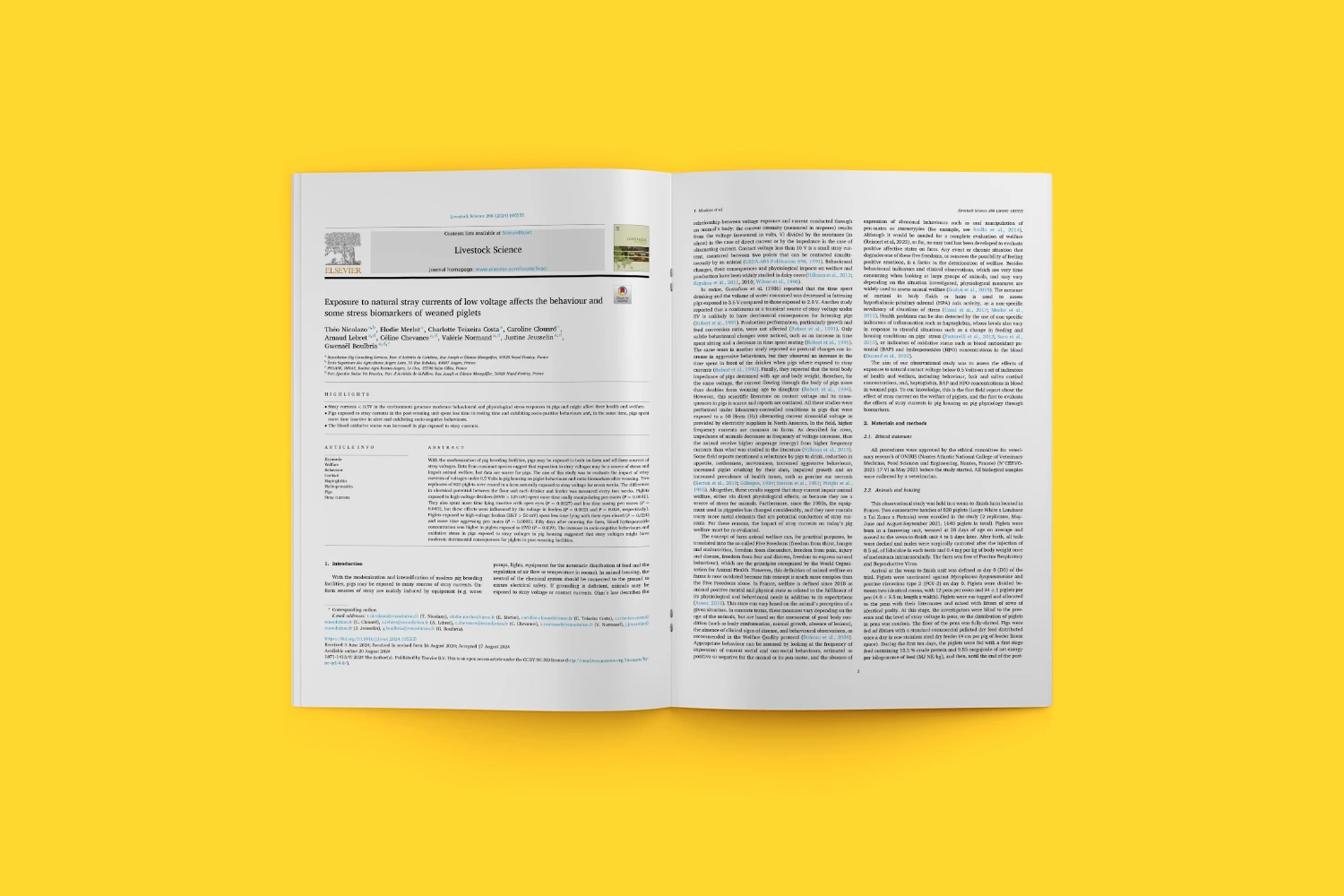Scientific publication
animal health
Stray currents in pig housing increase socio-negative behaviours and may affect their welfare
We recorded an increase in socio-negative behaviours and a decrease in socio-positive behaviours in the presence of stray currents in drinkers and feeders in piglets exposed to stray voltages < 0.5V.
This publication is a proof-of-concept and the first step for other trials with the purpose of gaining knowledge about the complex and controversial topic of stray currents in pig housing. Stray currents could be remediated by checking the proper grounding of the on-farm electrical systems, or by disconnecting or replacing the offending equipment, or by filtering the high-frequency transients generated by the equipment. In our study, we observed a decrease in resting time, an increase of time spent inactive in alert, an increase in socio-negative behaviours and a decrease in socio-positive behaviours in the presence of stray currents in drinkers and feeders. Moreover, the blood oxidative status of piglets was also increased, particularly in pigs exposed via drinkers. This observational field study showed that stray currents of less than 0.5V in the pig’s environment generate moderate behavioural and physiological stress responses, and suggest that they might affect the health and welfare of pigs. So, their prevention and remediation is a key point to ensure the welfare and the health of pigs.

